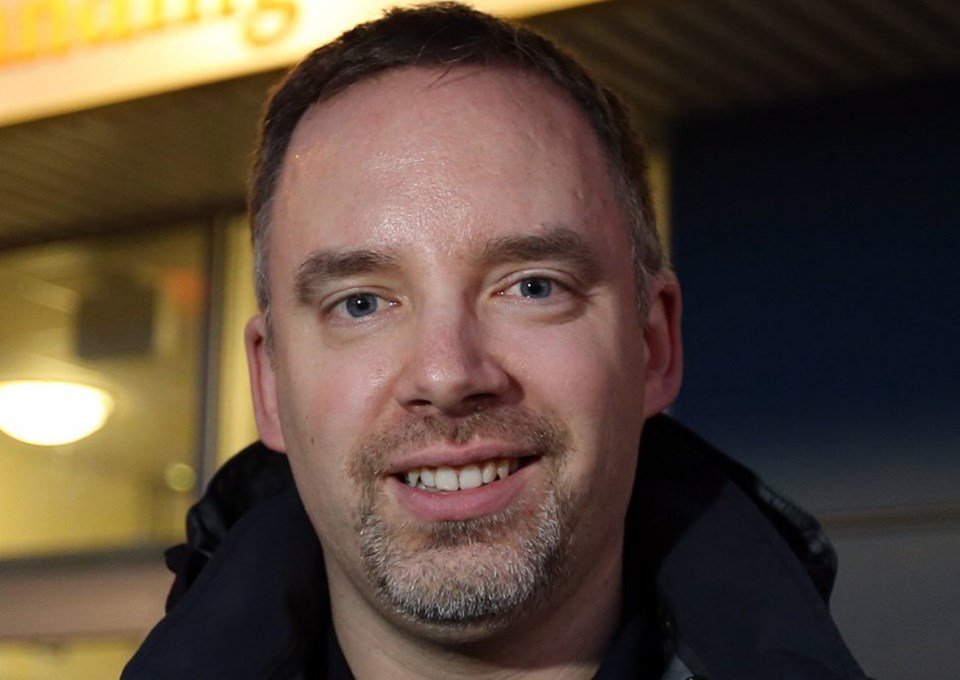A B.C. Human Rights Tribunal hearing that started on Monday will decide whether a Victoria police officer was discriminated against by the department for his outspoken advocacy of drug legalization and regulation.
Const. David Bratzer said the department effectively muzzled him by limiting his right to speak publicly as a member of Law Enforcement Against Prohibition (LEAP) while off-duty.
Bratzer said the case is “about my employer’s attempt to suppress a core component of my political beliefs. What is the point of allowing a political belief if you can’t express it?”
The lawyer representing the Victoria Police Department said certain limits on its officers’ off-duty conduct are reasonable, given that officers have a responsibility to be loyal to their employer.
Bratzer, representing himself, told tribunal member Walter Rilkoff that in 2008 he notified his superiors of his intention to join LEAP, an international organization of current and former law-enforcement officials pushing for full legalization and regulation of drugs.
He assured them that if he participated in any public work on behalf of the organization, he would make clear that the views were personal and not representative of the Victoria Police Department.
Bratzer said after former chief Jamie Graham was hired in 2009, the two talked about Bratzer’s involvement, and Graham “made it clear this would not be good for my career.”
Bratzer said in February 2010, Graham barred him from participating in a panel discussion on harm reduction at Victoria City Hall. He was also ordered not to comment publicly on Washington state’s successful referendum on marijuana legalization and was sent several letters stating that Graham disapproved of his actions.
“[Graham] said to minimize anything publicly that has an impact on the department,” Bratzer said, including avoiding talking to local media.
In 2011 and 2012, Graham sent two letters to Bratzer setting out restrictions on the constable’s activities with LEAP, including that he must ask permission before speaking publicly about drug prohibition.
“This was a broad, global ban on my ability to share my political beliefs 24/7 for the remainder of my policing career,” Bratzer said.
Bratzer argued he was being treated differently from other officers because of his pro-legalization and regulation stance.
Sean Hern, the lawyer representing Victoria police, said Bratzer was not discriminated against for his political views and was not treated differently from anyone else in the department.
Hern said Bratzer has made the restrictions on his activities with LEAP sound more onerous than they were in order to create “a straw man” for the tribunal.
Hern said all Victoria police officers have a duty of loyalty to their employer.
“A balance is required between an employee’s right of free expression and the interests of the employer and its reputation in the community,” Hern said. “The irony is not lost on the media that a law enforcement officer doesn’t believe in the law he or she is enforcing.”
Hern said problems could arise if police officers have “an unfettered freedom of expression when off-duty.”
He pointed to examples of a traffic officer who says bike helmets are an affront to liberty or that seat belts should be a personal choice. He also used the more extreme examples of an officer who believes pedophilia is acceptable or that jihad is a justified response against capitalism.
Bratzer is asking Victoria police to pay him $100,000 to fund opportunities to speak publicly about LEAP and $65,000 in damages for emotional distress.
“These funds will provide a starting point to enable me to attempt to rebuild my international reputation as an advocate for drug-policy reform,” Bratzer said.
Bratzer is asking that the restrictions on public speaking be lifted and any reference to his political beliefs be removed from his personnel file. He is also seeking a letter of apology from the department, and wants senior Victoria police officers to undergo sensitivity and human-rights training.
The tribunal is expected to last two weeks.



